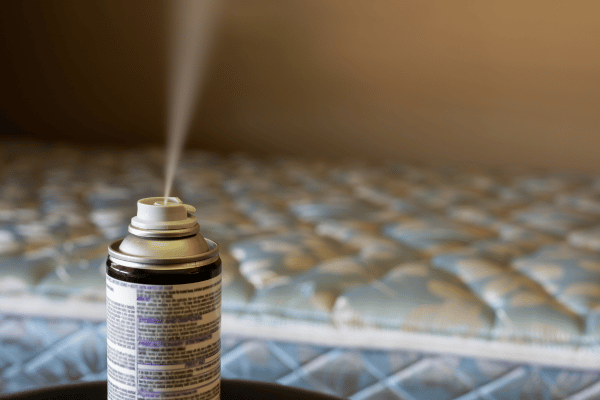- Home
- Get Rid Of Ants
- Home Remedies for Ants
Home Remedies For Ants
This post may contain affiliate links so I earn a commission.
Are you in need of some home remedies for ants?
An infestation of ants in your home isn’t just unsanitary and annoying, it can ruin the food you’ve spent good money on and even jeopardize the structure of your house if you have a carpenter ant colony residing in your walls.
As prices continue to rise on several things, you may be concerned about the cost of extermination or the price of the chemicals you need to buy to drive them away yourself.
Luckily, you can do something about your ant problem with some things that are probably sitting in your cabinets right now.
Many everyday home items can be used to kill or drive away these tiny pests.
Ant Extermination - Home Remedies For Ants
Before you head out to the store, check your cabinets for vinegar, cornstarch, and cinnamon.
These common household ingredients work great when used as home remedies for ants.
If you see a trail of ants leading into your home, wipe the ants away with a cloth soaked in white vinegar.
This will kill the intruders, and the smell will keep all the other ants of that colony away.
Cinnamon and cornstarch can be used to smother ants.
With cornstarch, cover the ants with the powder and then with water.
It will create a mess, but it is an effective method.
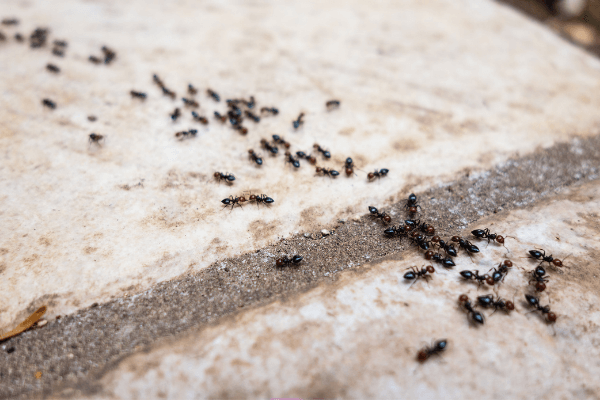
Cinnamon has the bonus of being poisonous and having an irritating smell to ants.
You can use cinnamon leaf oil on a cotton ball to keep the ants from coming back.
If you’re a fan of essential oils, you may have some tea tree oil lying around.
Tea tree oil is a very versatile substance, and it can even be used as a pesticide.
In a spray bottle, mix 5-10 drops of oil in two cups of water. Alternatively, you can soak a cotton ball in tea tree oil and leave it in places that ants are attracted to.
Some might find the smell unpleasant, but it can be mixed with peppermint, which also repels ants, to leave a better scent in the air.
Many gardening stores sell oil of lemon eucalyptus (OLE), which comes from the Australian gum eucalyptus tree and can also be used to create a pesticide spray.
Unless you have an infestation of one of the few ant species that build their colony in your home, the ants will come in to search for food and return to their colony outside.
If you find an anthill in your yard, it is probably the source of the infestation.
A quick and effective way to end an ant invasion is to pour boiling water over the anthill.
It will fill all the crevices of the anthill, which can extend for yards under the ground.
The hot water instantly kills most of the ants.
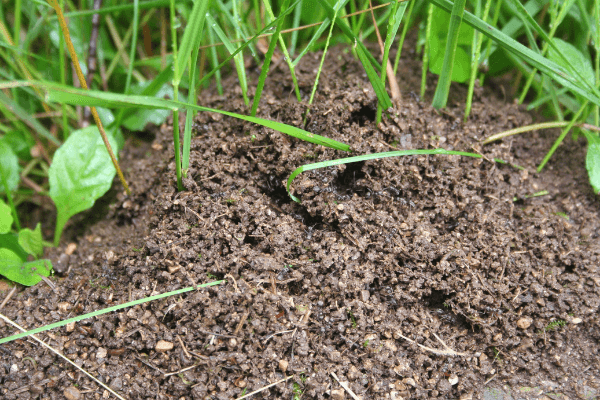
The remaining ones will turn their attention to protecting the queen and rebuilding.
This will give you time to ant-proof your home.
Sometimes your infestation may require something a little stronger than these substances in your cabinets.
That doesn’t necessarily mean you need to splurge on an exterminator.
There are home remedies for ants that require stronger chemicals but that is still cost-effective compared to alternative pest control options.
You can purchase some effective pesticides that are sure to solve your problems.
Diatomaceous earth, also known as silicon dioxide, extracts all the moisture from an ant’s body, dehydrating and killing it.
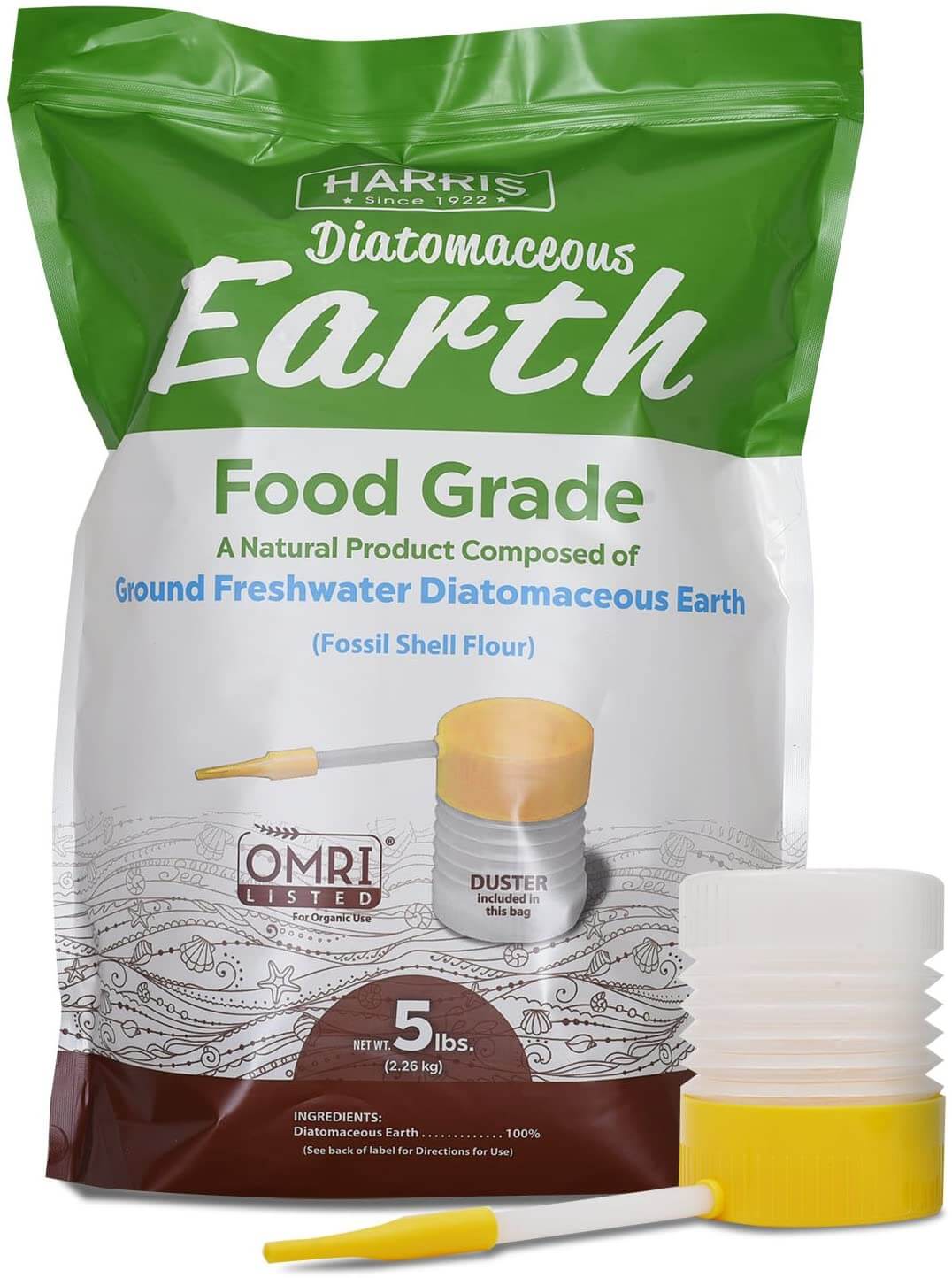
Boric acid and borax, two completely different chemicals, can each be mixed with water and sugar to create a solution that will poison and repel ants within a few weeks of exposure.
These poisons can get to the queen of the ant colony as well.
If the queen is killed, the ant colony will die off, and your ant troubles will be a thing of the past.
Be sure to keep all of these chemicals away from children and pets.
Read the labels
carefully and use them with caution.
Non-Lethal Ant Removal And Prevention
It isn’t necessary to annihilate the ants when resolving your pest problem.
There are several home remedies for ants you can use to protect your home and keep the ants outside where they belong.
If the ants are coming back time and time again, it’s because they have left a trail of pheromones leading from their colony to the stash of food in your pantry.
Removing this pheromone trail will prevent the ants from finding their way back inside.
You can mix glass cleaner with liquid detergent to make a solution that effectively removes the pheromones and leaves a scent that the ants don’t like.
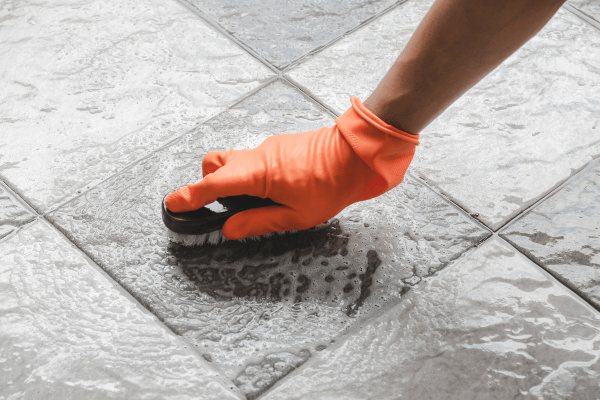
A simple scrub down with soap and water will also remove the trail.
Surprisingly, chalk is also effective at keeping ants at bay.
Comparable to a ring of salt in witch lore, a line of chalk at any entrance ants have found will create a barrier that the ants will not cross.
It’s unclear why ants respond to chalk this way.
It could be that the chalk blocks the pheromone trail, or it could be that ants are averse to the calcium carbonate that chalk is made of.
You can also use several aromatic ingredients you have in your kitchen to repel ants.
These smells aren’t poisonous to the ants, but they are irritating to them and will keep them out of your kitchen for good.
A sprinkling of cayenne or black pepper around the baseboards, windowsills, or anywhere else that ants can get in will make your home seem much less inviting.
Used coffee grounds and citrus peels have a very similar effect, as well as several essential oils.
You can soak a cotton ball in peppermint oil, neem oil, or lemon eucalyptus oil (not to be confused with oil of lemon eucalyptus, or OLE).
These strong-scented cotton balls, when placed in areas that ants are attracted to, will make those places undesirable.
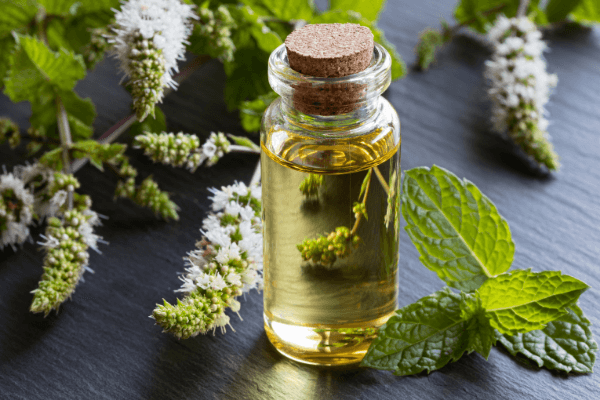
The ants will find their food elsewhere.
Peppermint oil can also be mixed with water to create an ant-repelling spray.
Mix 10-20 drops with two cups of water and use the solution to spray baseboards and windows.
This will mask the trail of pheromones leading to your home and replace it with something that the ants will stay far away from.
Home Remedies For Ants - Overall
You can use any combination of these home remedies for ants to keep your home, food, and family safe from these annoying invaders.
If your infestation is too large to handle on your own, you can always rely on help from professionals who know exactly how to handle any pest problem you have.

